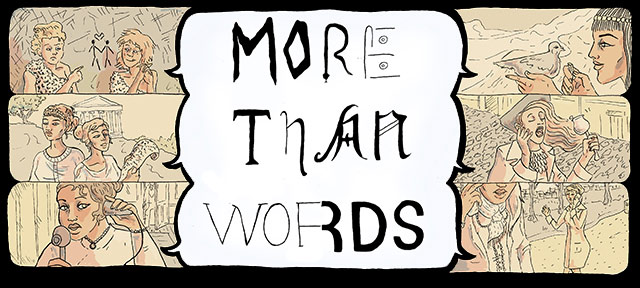
I’ve been writing More Than Words for a long time now, teasing out histories and cataloguing usages and tracing variations, and I’ve reached a conclusion: we need more! More building blocks with which to describe and communicate all of the many ideas and identities we’re constantly generating. More flashcard fillers. More fun toys to pun with.
But, just like leaders and heroes and good sandwiches, words aren’t born: they’re made. Specifically, they’re made by ordinary people — people who were at a loss for them and, rather than staying quiet, decided to conquer new linguistic territory. Without them, we’d still be at a preschool reading level.
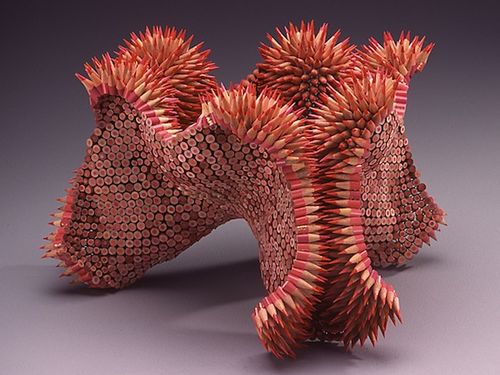
I see no reason we at More Than Words can’t join their ranks, so I’ve put together this handy guide. May you never be silent again!
The More Than Words Guide To: How to Make a Word
Step One: Figure Out What It Will Mean
When you’re word-making, you’re filling a gap in the world. The first step* is to identify the gap! What do you want to be able to talk about that you literally cannot, not for emotional reasons, but just because the right sound-combos don’t exist?
If nothing is coming to mind, here are some brainstorming exercises to help you along:
- Think of something often called “indescribable” or “ineffable,” and then try to describe (or eff) it. (Bonus: your love letters will improve immensely.)
- Try to remember the last time a word was oh god on the tip of your tongue so close agggggh but never came to you. You feel frustrated, right? Channel that! You don’t need that word! You can make up your own!
- Think of a word that you hate, and invent a less-hateable alternative. For example, everyone agrees that “moist” is viscerally terrible, and yet no one has done anything about it. Be the change.
*note: you can also invent the word first and the meaning later! If you’d prefer to do that, just read this guide backwards.

Step Two: Gather Your Tools
What are words made out of? If you said “letters,” yes, you’re technically right, you wiseass! But they’re also often made out of larger, prescribed letter-chunks, combined in various ways. Choosing the right chunks and combo-techniques can mean the difference between, say, “wiseass” (effective; popular) and “smartbutt” (neither).
All The ‘Fixins
As we’ve learned, many, many English words are built from “linguistic elements,” or morphemes — generally prefixes (which go at the front of a word), suffixes (which bring up the rear), and infixes (I bet you can deduce this one, based on its prefix and suffix). Taken together, these are called “affixes.” There’s also another class of word-bits, called “combining forms,” which don’t have a prescribed position, but also can’t survive totally on their own — think “electro” or “mini” or “graphy.” Creating a new word from these pieces is often just a matter of remixing — breaking down your meaning, finding the definitively corresponding bits, and piecing those together again. Bonus: using this method also makes it likely that others will intuitively understand what your word is getting at, since we’re all pretty familiar with these building blocks. If you need to brush up, or want to learn some more, the Dictionary of Affixes is a great resource.
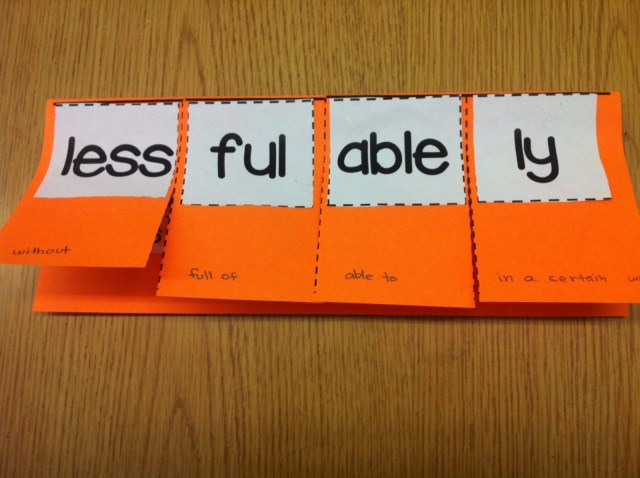
Portmanteaus
A portmanteau, (or, more boringly, a “blend”) is made by smushing two words together, along with their definitions. Portmanteau is, itself, a portmanteau of the French words porter (“to carry”) and manteau (“coat”), and was originally the name of a two-compartment suitcase before it was repurposed. To be a true portmanteau, some elements of the words must disappear in the smushing — so “eardrum” is not a portmanteau, but “grool” is. Like love children, some portmanteaus become so successful that their parentage is no longer their most notable attribute — did you know that “smog” started out as “smoke/fog”? Others, like “spork,” carve their own way while carrying the family name. Yet more shine brightly and briefly in the New York Times’s “One-Page Magazine” and then flame out (e.g. fidgital, scampaign, lostentatious). If you’re multilingual, punny, or great at christening ‘ships (we still need a name for these two), portmanteaus are probably for you.

Eponyms
An eponym is a word made entirely or partially out of somebody’s name, generally the person who invented, discovered, or exemplified whatever thing the word is referring to. These are really easy to construct, but slightly harder to make happen. They’re are most successful when they attain a broader meaning than “reminiscent of [this person]” — e.g. “Orwellian” and “Kafkaesque” conjure up very specific set of ideas, while “Woolfish” (an attempt of mine) has so far failed to catch on. And you know you’ve done well when you get to drop the capital (see: sadism; theremin; quixotic).
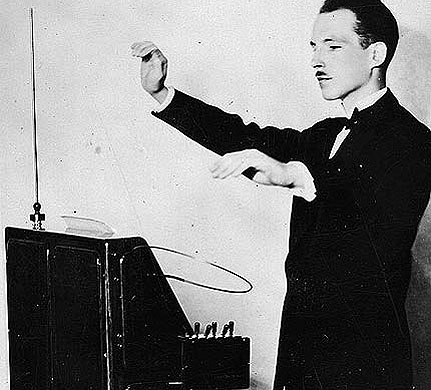
Euphemisms
A euphemism is kind of a different beast — they’re usually made out of whole, entire, separate words, so I guess you would actually call them “phrases.” But I’m including them here anyway, because a. they’re fun and b. they’re useful, especially in a culture where all the available words for very, very important physical parts, acts, and other “unmentionables” (ITSELF A EUPHEMISM!) are either silly, overly clinical, or slurs. Unlike the other categories on this list, euphemisms rely less often on sounds and meanings, and more often on vivid, often visual descriptions and congruencies. If you need inspiration, here’s a good place to start!
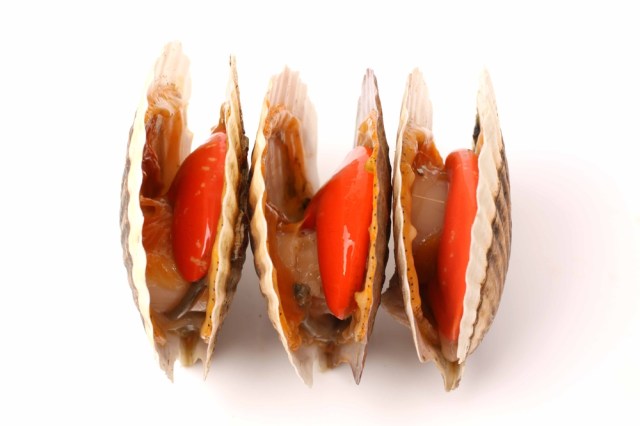
Weirdo Words Out Of Nowhere
Maybe you don’t want to do things by the book! Maybe you want to go rogue and slap a bunch of completely unrelated things together because they sound or look good (hey, it worked for the Spice Girls). I encourage this, and sometimes it works really well, likely thanks to a combination of luck and, perhaps, sound symbolism. A successful example of this is “grok,” which was invented by Robert Heinlein in his 1961 sci-fi classic Stranger in a Strange Land, and which I’ve since spotted everywhere from Mad Men to this Wired article about Google Glass. An unsuccessful example is “fetch.”

Step 3: Practice Makes Perfect
We’ve all been there — sometimes things look good on paper, or sound truly excellent in your head, and then end up dying quickly and painfully when let go into the real world. You’re going to want to test your word out in your journal, or in your inner monologue, and definitely out loud in front of the mirror, before you unleash it. Work out any kinks, settle on a canonical pronunciation and let it accrue those subtle shades of meaning that make language so beautiful. Most importantly, get comfortable bringing it naturally into conversations — this is important for Step 4.
Step 4: Spread Your Word!
Now that you’ve incoporated it into your personal lexicon, it’s finally time to let the rest of the world enjoy your exquisitastic new word! Start dropping it into conversations, using it casually on your Tumblr, and sneaking post-its into dictionaries. Before you know it, you’ll be hearing it in pop songs and speeches and the mouths of babes using it to shock their moms. And the best part? If it doesn’t catch on, you can always scroll up, start over and try another. And another. After all, that’s the only way this article is even around to get reread.
This has been the thirty-sixth installment of More Than Words, where I take queer words of all sorts and smash them apart and see what makes them tick. Every week I dissect a different word, trying to figure out where it came from, how it has evolved, where it might be going, and what it all means. It’s like reading the dictionary through a prism. Feel free to send word suggestions to [email protected].
Header by Rory Midhani








Comments
I’m a total dork for linguistics, and this is the greatest things I’ve read all day. <3
I know Autostraddle touches on lots of girl-on-girl culture cliches and tropes. Now we just need to assign words to those recognizable patterns, and there could exist a mini queer lexicon which those sillystraights could never comprehend. Mwahahaha!
No but yeah…words are kinda cool.. *coughandlanguageispowercough*
This is awesomerrific! I love making up words
I genuistically believed I had phantasmeated the word “quimsical”, which is my favourite self-adjective – until the power of the internet deflumped my hubris.
Thank you for the quixoticism this morning!
p.s….it’s quite scrumpalicious to have the auto-fill keep asking if I would like these words added to the dictionary!
Snaps for including Theremin!
BUT GUYS…are Cara and Michelle still dating? I asked this in the comments of a previous article and no one responded. If Autostraddle doesn’t keep me up to date on pop culture happenings, I’m at a complete loss.
Hmm apparently either no one knows or no one cares…too bad…
I don’t understand why Americans get all freaked out about the word ‘moist’. That word reminds me of the ideal state of sponge cakes, as opposed to ‘stale’.